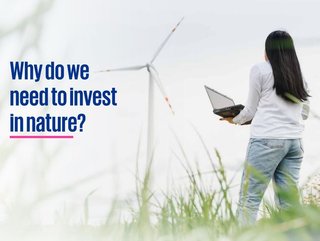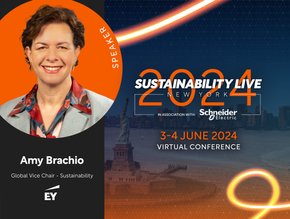KPMG Report: Is it Time to Make Biodiversity an Asset Class?

KPMG is making the case for scaling up business investment in nature by making biodiversity officially an asset class.
In a report called The Investment Case for Nature, it says the current annual global spend on biodiversity is US$166bn – one sixth the amount required per year by 2030.
It calls for work to create incentives – including making biodiversity a separate asset class – and to harness data and tech.
What does ‘biodiversity as an asset class’ mean?
The report, led by Sarah Nelson, KPMG Global Coordinator, Nature & Biodiversity, says: “It involves recognising and valuing biodiversity and ecosystem services in a way that enables them to be traded or invested in, similar to traditional financial assets.
“It can help to mobilise and make biodiversity investments more visible.
“However, transparency of accurate and complete information to investors and issuers will be key to avoiding information asymmetries.”
Closing the nature finance gap
Sarah says: “Closing the nature finance gap is both a public and a private responsibility.”
The report adds that, while nature is a public good and should be financed through public funding, it also “underpins the global economy, providing critical ecosystem services as well as raw materials” for processing, manufacturing and production of goods.
It says: “The business case for protecting and restoring nature and biodiversity is growing. The challenge now is around mobilising funding (both public and private) to help close the nature financing gap.
“The time is now for businesses and the financial sector, as well as the conservation communities on the ground, to deploy change to break barriers and meet financing needs for conservation.”

Making the case
The IUCN Red List shows 42,100 species are threatened with extinction, including 41% of amphibians and 36% of reef-building corals.
These numbers can be taken in isolation – until the clear connection between nature and business success is explained.
The report explains that nature “underpins the global economy.
“Every business and financial sector entity has dependencies on nature.
“For example, a bank might have exposures in a range of agricultural enterprises or other businesses highly dependent on nature.
“The overall performance of the exposures are therefore closely tied to the health and resilience of the natural environment.”
Nature the money-maker
The report says protecting nature and biodiversity could generate business opportunities worth US$10tn annually through new business, resource efficiency and cost reduction.
This could create over 400 million jobs globally by 2030.
The total funding required to finance nature and biodiversity is estimated to be US$384bn per year by 2025 and US$484bn per year by 2030.
At the same time, one third of climate solutions depend on nature to meet the Paris Agreement, thanks to natural carbon sinks such as oceans, soils and forests.
******
Make sure you check out the latest edition of Sustainability Magazine and also sign up to our global conference series - Sustainability LIVE 2024
******
Sustainability Magazine is a BizClik brand
******
- Sustainability LIVE Dubai: Lina Osman, Standard CharteredSustainability
- Why the Private Sector Needs to flip Nature Financing ScriptSupply Chain Sustainability
- Bupa: Investing in nature for physical and mental wellbeingSustainability
- Surge in XaaS adoption can help save the planetSustainability






